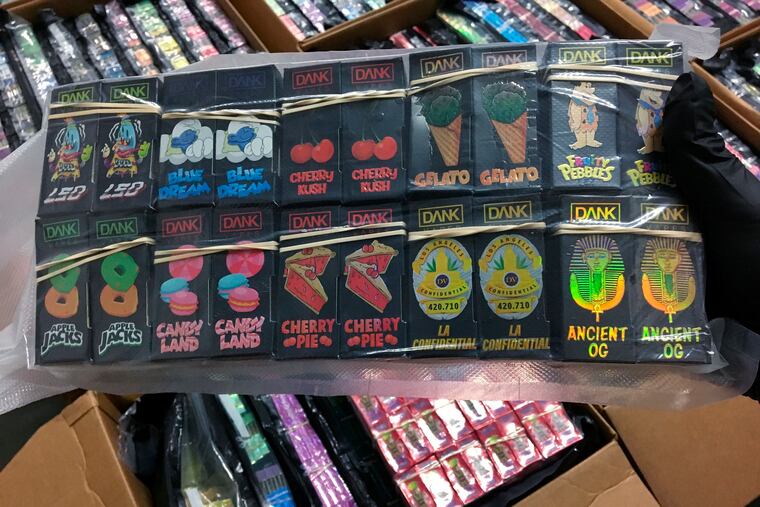Tech companies should not treat online drug sales like free speech | Opinion
The selling of illegal drugs online is not a matter of free speech but is a crime and should be treated as such.

Every day, online retailers promote the sale of illegal drugs in the U.S. via social media platforms. Anyone with access to a computer or smartphone can be targeted by illicit postings advertising drugs, including opioids, fentanyl, MDMA (ecstasy), heroin, and allegedly authentic FDA-approved pharmaceuticals. This poses significant health risks to buyers because not only are these dangerous and illegal substances, but they are also not regulated according to any consistent standard of safety.
Tech giants like Instagram, Facebook, Twitter, and YouTube defend themselves by asserting that Section 230 of the Communications Decency Act protects users’ right to free speech. But since the act was instituted in 1996, holes have been poked in the provision. One recent example is the “Allow States and Victims to Fight Online Sex Trafficking Act,” which President Trump signed into law April 11, 2018, and makes clear Section 230 does not prohibit enforcement of federal and state criminal and civil law relating to sexual exploitation of children or sex trafficking against providers and users of interactive computer services.
The act was amended for the protection of social media users against potential sex crimes. In the same regard, should Section 230 be used to protect those advertising the sale of illegal drugs? I think not, since the use of illegal, unregulated drugs is extremely dangerous and poses great health risks to consumers.
The selling of illegal drugs online is not a matter of free speech, but is a crime and should be treated as such. Just last month, the FDA and DEA sent a first-of-its-kind joint warning letter to 10 websites who were illegally marketing and selling opioids. This is a great step, but it is not enough.
FDA regulations governing pharmaceutical importation and sales exist for a reason. The practice of importing misbranded, unapproved, or adulterated drugs from unmonitored overseas distributors threatens patient safety. Combating the influx of illicit pharmaceuticals into the U.S. is crucial to protect public health.
The massive market for illegally imported drugs includes not only illegal recreational drugs, but also a wide market of medicines and pharmaceutical products, including illicit, cosmetic drugs that have proven unsafe.
In 2004, four individuals were paralyzed after receiving an illicit Botox imitator. Then in 2014, Christopher Carstens, owner of Orthopaedic Solutions, pled guilty to importing and selling $3 million worth of illicit Botox and Juvederm in the United States. The drugs were labeled for use in Great Britain, the United Arab Emirates, Bahrain, Kuwait, Lebanon, Oman, and Palestine and were brought into the country illegally, skirting FDA regulations.
Since then, the FDA has sent numerous letters warning doctors of counterfeit Botox infiltrating the markets.
Social media sites are not adequately self-policing the content on their platforms as it relates to the sale of illegal and illicit drugs. We cannot ignore this; social media platforms must be held accountable for irresponsible inaction. If a more robust enforcement mechanism is not instituted, more people will suffer from adverse health complications, or even worse, death.
As a former Republican U.S. Representative and member of the House Energy Subcommittee on Communications and Technology, I take this issue very seriously. Ten Pennsylvanians die each day due to substance use disorder. Smart policymaking can help reduce this. Congress should consider instituting a legally enforceable standard of care for social media companies to comply with Section 230 of the DCA.
I applaud my former colleague, Rep. Mike Doyle (D., Pa.), for scheduling a hearing on Oct. 16, 2019, on this issue involving corporate responsibility and online consumer protection. I respectfully encourage him and all members of Congress to examine how best to require social media companies to take adequate steps to address illegal drug advertising and sales facilitated on their websites.
Ryan Costello is a former two-term U.S. Congressman (R., Chester) and now works as a public policy consultant. www.ryancostello.com